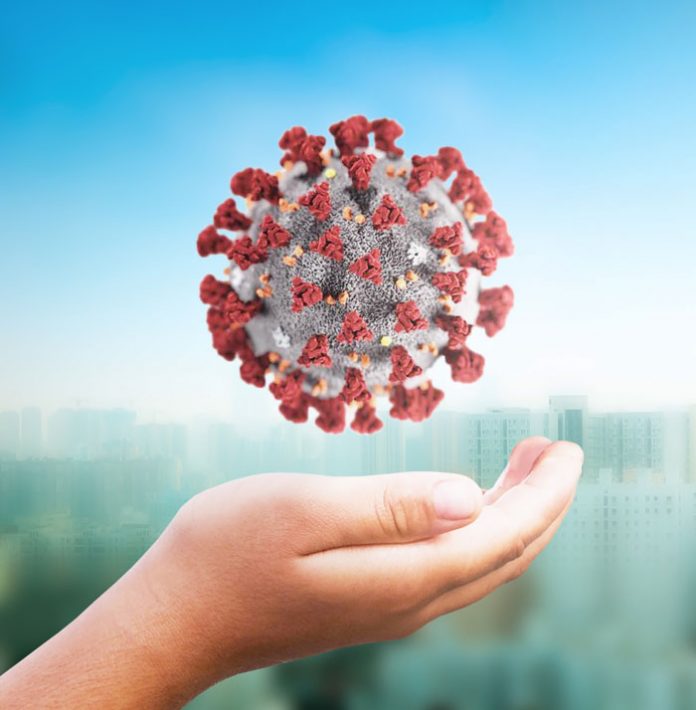For the first time in a long time, I am optimistic that we can dodge the bullet of COVID-19, no matter how nasty its mutations become. The more I read about Sorrento Therapeutics, the better I feel. They have a biological “library” of sorts, containing billions of different antibodies. It is the largest such library in the world. Last week, I reported that they had found one particular “monoclonal antibody” (mAb) that had been sitting untested on the shelf for a couple of decades.
It turns out that mAbs are a whole new approach to conquering infectious diseases.
“Protein drugs made from a single clone of antibody or monoclonal antibody (mAb) have become a mainstay of medical therapy since the approval of the first therapeutic mAb in 1986. More recently there has been a focus on using mAbs to fight infectious diseases, with the idea that mAbs can bind to and neutralize a range of pathogens. There have been many studies also looking at using mAbs as a preventative treatment against infectious diseases including cytomegalovirus, Ebola, influenza, HIV, rabies and respiratory synctitial virus (RSV). One mAb, Palivizumab (Synagis, MedImmune), is already approved by the FDA to protect infants from RSV.”
Vaccines are better in the long run, but mAbs are better in the short run, especially if the patient is already sick with COVID-19.
“One key advantage of mAbs for infectious diseases is that they can be given regardless of the patient’s infection status. Even if intended to prevent disease, they can help neutralize virus in an active infection. While they may not be curative in all people, they can offer more help to the infected person’s immune system than a vaccine.”
Sorrento has already proven in the test tube that its mAb (called STI-1499) stops COVID-19 100 percent of the time. But the criticism is that antibodies do not last exceptionally long—weeks, maybe months at most.
Still, for someone who is dying on a ventilator, a few extra months of life free of COVID-19 might look like a major miracle. While short-lived, at least STI-1499 is 100 percent effective, even at absurdly low doses. Having to get a booster shot every few months is not the worst alternative.
By itself, Sorrento’s STI-1499 antibody is not a permanent cure, but it is a wonderful temporary bridge to get us out of harm’s way until some new and better vaccine is discovered, tested, and mass-produced. Vaccines are just not all that helpful to elderly patients who may already have been immunocompromised before they caught COVID-19.
There had to be a way to lengthen the effective time range of the mAb while avoiding the slowness that typifies vaccines. That was when Sorrento did something quite brilliant—it brought in a partner, SmartPharm, to make a genetic hybrid called Gene MAb™:
“Unlike classical antigen-based vaccines, which rely on a patient’s immune system to establish efficacy, SmartPharm’s gene-encoded antibody platform is designed to directly neutralize the coronavirus by producing the protective antibody directly in the muscle of the individual. This gene-encoded monoclonal antibody delivery platform, or Gene MAb™, bypasses the in vitro antigen production process and potential for vaccine-induced side effects in immunized individuals.
“This is especially important in susceptible populations like the elderly, where antigen-based vaccines are significantly less effective for the prevention of respiratory infections such as influenza or coronavirus. The companies expect that this novel approach will enable faster progression to clinic, pending agreement with the FDA.
“As part of the collaboration, Sorrento and SmartPharm expect to develop a gene-encoded antibody or antibodies that can be administered as a prophylaxis against SARS-CoV-2 infection.”
Sorrento’s new partner, SmartPharm of Cambridge, Massachusetts, came up with a plan to encase the RNA-fighting antibody in a long-lasting (but fast-acting) DNA envelope:
“After delivery in the muscle, the DNA is designed to produce antibodies in the muscles within a matter of hours. Within a day or two—a much faster time than a typical vaccine—protective levels of antibody could be produced, resulting in what we refer to as ‘pop up-immunity’: a rapidly established window of immune protection against the virus.”
“Antibody production lasts several weeks or even months and is effective regardless of what the recipient’s immune system is like or whether they are infected or not. Creating pop-up immunity with Gene MAbs™, which are both cost-effective and scalable for large population protection, introduces a way to quickly mount a protective immune barrier in treated people and reduce the infectivity of the virus in larger populations.”
Hope: a small pharmaceutical company seems to be on the right track
As told to Chaya Silber by Rabbi Moshe (Mickey) Shur
To read more, subscribe to Ami


























